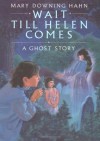Familiar Diversions
I'm a librarian who loves anime, manga, and reading a wide variety of genres.
Currently reading
Killing Mr. Griffin by Lois Duncan

Brian Griffin is a strict high school English teacher. He doesn't accept late assignments for any reason. He considers an "A" grade to indicate perfection, meaning that even his best students don't get more than a B in his class. He once humiliated one of his students, Mark, making him beg to stay in his class after an incident with one of his assignments, only to tell him "no" and force him to take the class over.
Mr. Griffin's kidnapping starts with Jeff's frustrated and angry mumbling: "That Mr. Griffin's the sort of guy you'd like to kill." From there, Mark hatches a plan to scare Mr. Griffin by kidnapping him and making him think he might be killed. Jeff, Betsy (Jeff's cheerleader girlfriend), and David (senior class president and one of the most popular guys in school) also get involved, as does Susan. Susan is one of the Mr. Griffin's best students. She doesn't exactly like Mr. Griffin, but she doesn't have any reason to want to scare him. She does, however, have a huge crush on David, and it doesn't take much for him to convince her to help. Susan's job will be to make sure Mr. Griffin is in the right place at the right time to be kidnapped, while Jeff, Mark, and David do the actual kidnapping. Betsy is supposed to provide the guys their alibis. Unfortunately for everyone, the kidnapping does not go as planned.
I had hoped to check out Duncan's I Know What You Did Last Summer to read for my "Slasher Stories" square in Halloween Bingo, but my library didn't have that. Killing Mr. Griffin sounded interesting, though, so I decided to give it a go.
Killing Mr. Griffin is on the American Library Association's list of frequently challenged YA books. While trying to track down information about why it was challenged (for "violence and sexual content," according to the ALA), I came across a 2015 article describing a group in Collier County, Florida trying to get it removed from school libraries.
I didn't know any of that going in, but the title did a good job of signalling that Mr. Griffin was at least going to be in peril, and quite possibly end up dead. After Chapter 5 and its depiction of Mr. Griffin's home life, his true thoughts about his students, and his motivations, I was hopeful that the book would end up being a thriller in which readers would frequently worry that Mr. Griffin would end up dead but that he'd somehow make it until the end. Duncan dashed those hopes much more quickly than I expected.
I really liked the first few chapters of the book, which gave readers peeks at several of the main characters and the things that drove them. Susan was a shy girl who enjoyed writing, secretly had a huge crush on David, and felt overshadowed by her beautiful family members. Although David seemed perfect and untroubled at school, his home life was a different story. His dad left without a word a while back, and his mom probably saw too much of his father in him. His grandmother on his dad's side lived with them and had him at her beck and call whenever he was home, even though he strongly suspected she moved around just fine when he wasn't there. Mr. Griffin, meanwhile, had a happy life with his pregnant wife. He'd quit his higher paying job at the University of Albuquerque to teach high school students, hoping to give them the foundation they needed in order to thrive in college.
It was good stuff, even if the language was a bit dated. Unfortunately, I began to enjoy it less and less as the characters struggled to cover up what they'd done and, in Susan's case at least, deal with their crushing sense of guilt. This was not the kind of book where the cops were idiots, and these teens weren't criminal masterminds. In the end, I felt like I was just waiting to see which aspect of the crime would fall apart first. It wasn't so much suspenseful as it was frustrating.
The ending was both a bit over-the-top (the big confrontation) and depressing (the note). Although I didn't particularly enjoy the direction the story went after the kidnapping, and how things turned out, the last chapter would make for an excellent group discussion on guilt, peer pressure, and how the adults' interpretation of the events differed from how Susan likely viewed it all.
Additional Comments:
Apparently this book was "updated" at some point to include references to more modern technology, such as iPods and DVDs, without updating the dated feel of the dialogue and overall language. I read the original version of the book and, from the sounds of things, that's the best way to go if you can manage it.
(Original review posted on A Library Girl's Familiar Diversions.)
 2
2












